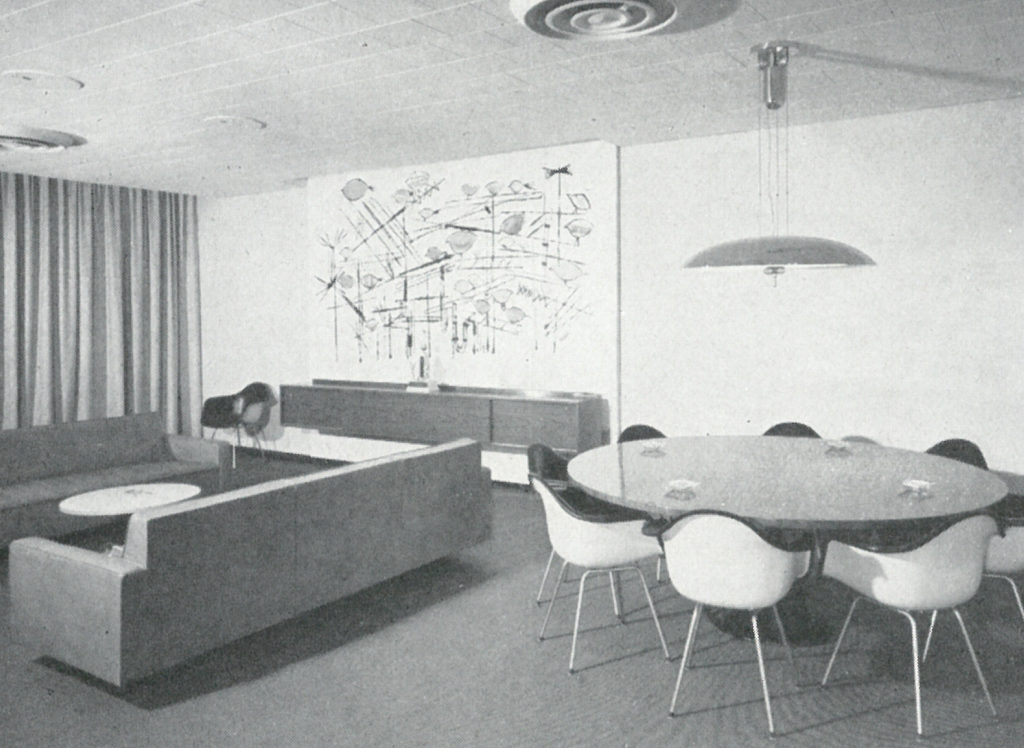Opinion
A Newly Discovered Warhol Reveals His Modern Roots
THE DAILY PIC: A late-50s Warhol commissioned for the CBS offices in Milwaukee was unknown until now.

THE DAILY PIC: A late-50s Warhol commissioned for the CBS offices in Milwaukee was unknown until now.

Blake Gopnik

THE DAILY PIC (#1811): As far as I know, there are all of two living souls who have seen this photo of a lost painting by Andy Warhol: Me, and University of Pittsburgh art historian Alex Taylor, who shared it with me after digging it up during his PhD research. Oh, right—and now it’s known to everyone reading this post.
It was published in 1959 in a little book about modern office decors, with a caption that located it in the new CBS offices in Milwaukee, decorated by the great George Nelson himself.
The venue isn’t that surprising: Warhol had already done plenty of illustrations for the network. Neither is the subject and its treatment: Warhol, widely known in the 1950s as a Ben Shahn wannabe, here riffs on Shahn’s famous image of a skyline full of TV aerials, of which Warhol owned a fine print. Even the commission isn’t that unexpected: In the late 1950s, with the help of his friend Emile de Antonio, Warhol took on a bunch of contracts for decors, including one for the Brasserie in the Seagram Building in New York. (I haven’t been able to find any trace of Warhol’s work there.)
What might just come as a surprise, however, is the notion that Warhol’s fanciful, fey drawings were suited to the sleek rigors of mid-century modernism, as touted in the book that published his Milwaukee painting. In fact, however, even the most severe, minimal modernism came with a strong taste for the childlike and naïf – two words used to describe Warhol’s art at the time. And Warhol himself was a devotee of modern design, decorating his late-’50s apartment with the latest in Danish furniture and silverware (I’ve seen the receipts), which he mixed with his growing collection of folk and outsider objects.
Warhol is sometimes billed as the first of the postmoderns, and that makes some sense. But this photo helps us see how deeply rooted he was in the modern.
For a full survey of past Daily Pics visit blakegopnik.com/archive.